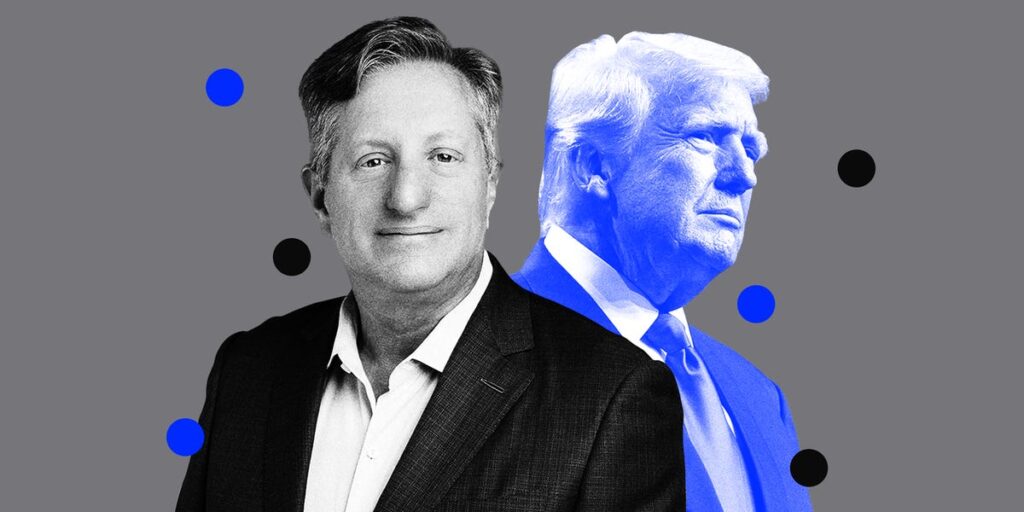Over this summer, a famed investor who foresaw and capitalized on the housing bubble made another bold prediction — one that was sure to thrill half the country and frighten the other half.
Another Donald Trump presidency was an inevitability, Steve Eisman of “The Big Short” fame told Bloomberg TV, first in early May and again in mid-July. He said so matter-of-factly and with a certain nonchalance, as if he were telling a friend about the weekend weather forecast.
Eisman wasn’t alone in his call for a Trump victory, though his conviction was unmatched by almost everyone outside of the Republican nominee’s camp. Prediction markets pegged the chance of a second Trump presidency at around 70%, though that was still exceptionally high.
Trump’s opponent at the time was President Joe Biden, and the incumbent’s campaign appeared to be on life support as it bled support from Democratic power brokers.
Ten days after Eisman’s second call, Biden surprised many by bowing out of the presidential race. Vice President Kamala Harris picked up the baton, and those same betting markets now have her as the favorite against Trump in November.
Eisman is still confident that Trump will win, though he acknowledged in an early-September interview with Business Insider that the race is far different without Biden in the mix.
“It’s certainly not 100%,” Eisman told BI when asked about the odds of a Trump victory. “My expectation is that Trump will still probably win, but I wouldn’t stake my life on it.”
How this fall’s winner will shape markets
The “Big Short” investor earned his fortune by making bold, out-of-consensus calls, and he certainly isn’t afraid to speak his mind — even if it means ruffling some feathers.
Despite his bullish call on Trump, Eisman — who said he voted for Biden in 2020 — wasn’t openly rooting for either candidate. However, he certainly didn’t come across as fond of Harris, whom he doesn’t believe is being straightforward about her views.
“She’s more progressive,” Eisman said of Harris. “I mean, she did say that she’s for universal healthcare, she’s against fracking, et cetera. And I’m not telling anybody not to be for universal healthcare or not to be against fracking. It’s just that it seems to me, deep down, she is more to the left than Biden, but she’s running away from that.”
Each candidate’s positioning and messaging is critical since it could determine the winner of this week’s debate between Trump and Harris, in Eisman’s view. The faceoff could have a major impact on momentum, as the late-June debate with Biden did for Trump.
“Basically, the more he paints her far-left is good for him, and the more that she paints him as being volatile is better for her,” Eisman said. “That’s what the debate’s going to be.”
Although partisans are treating this year’s election as if it’s existential, Eisman said investors don’t have to sweat too much about the outcome.
“For the overall market, I don’t think it matters who’s president,” Eisman said.
There’s a major caveat to that statement. Eisman explained that US stocks should hold up well no matter what, as long as there’s split control of the Senate and the House of Representatives. But if the same party controls the White House and Congress, that may be a different story.
“If Harris wins and both houses of Congress go Democratic, I think the market would probably have a very large correction,” Eisman said. “Because people would be worried that they’ll be able to pass a lot of these tax things that they’re talking about, which the market would not like. So a Harris sweep for the market, at least in the near term, would be negative.”
Conversely, a red wave would be fine for the broader market but potentially harmful for sectors and industries like green energy, Eisman estimates.
“If Trump wins and both houses are Republican, the market is fine, but there’ll be certain sectors that will not do well and certain sectors that will.”
Regardless of who wins in November, investors of all political persuasions can at least take solace in Eisman’s firm conviction that there won’t be a repeat of the financial crisis.


